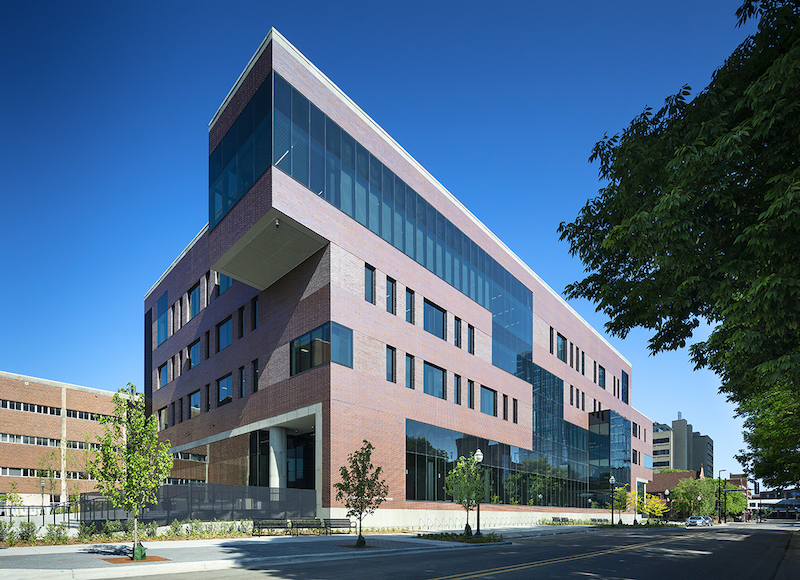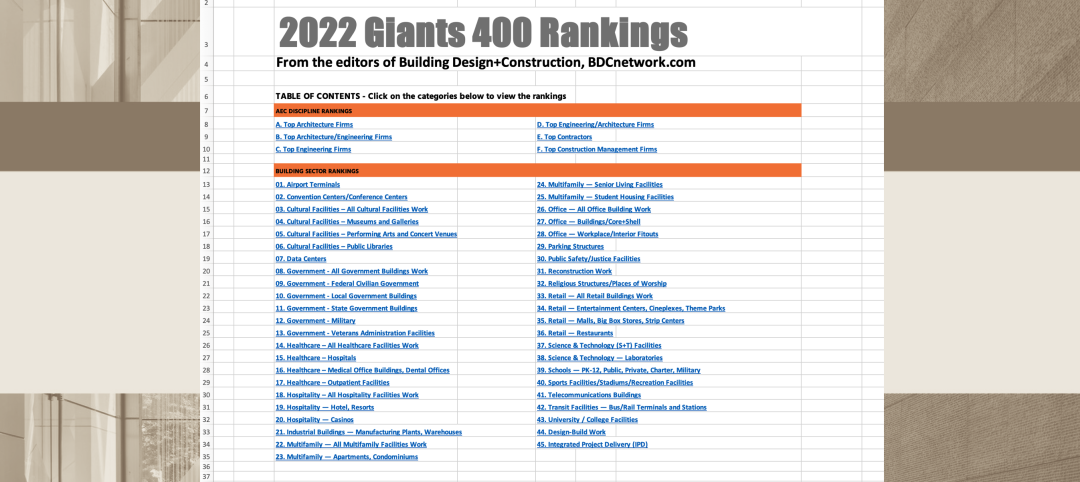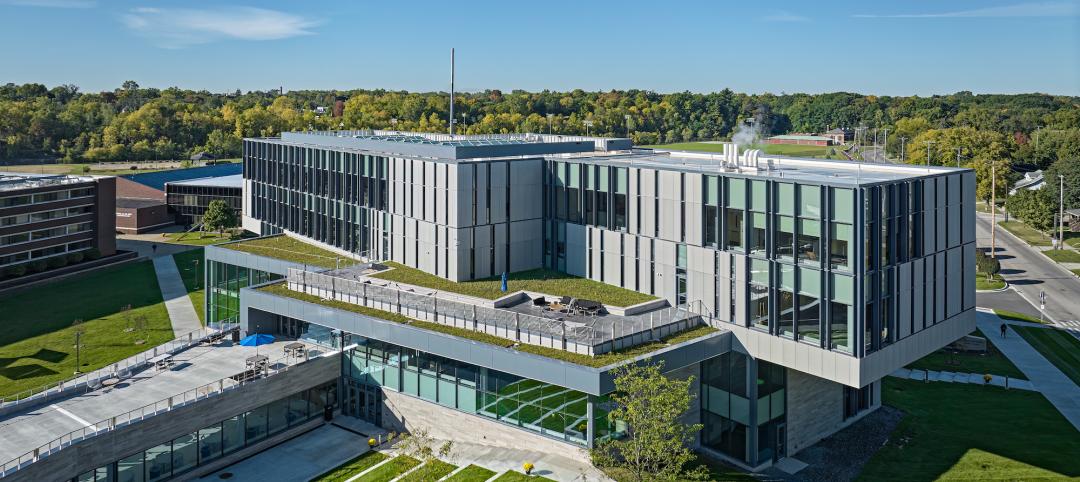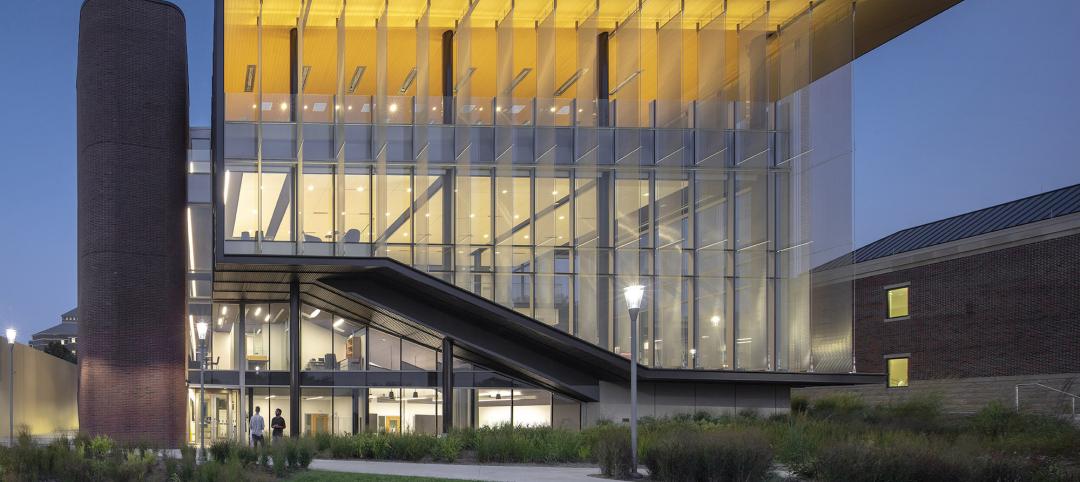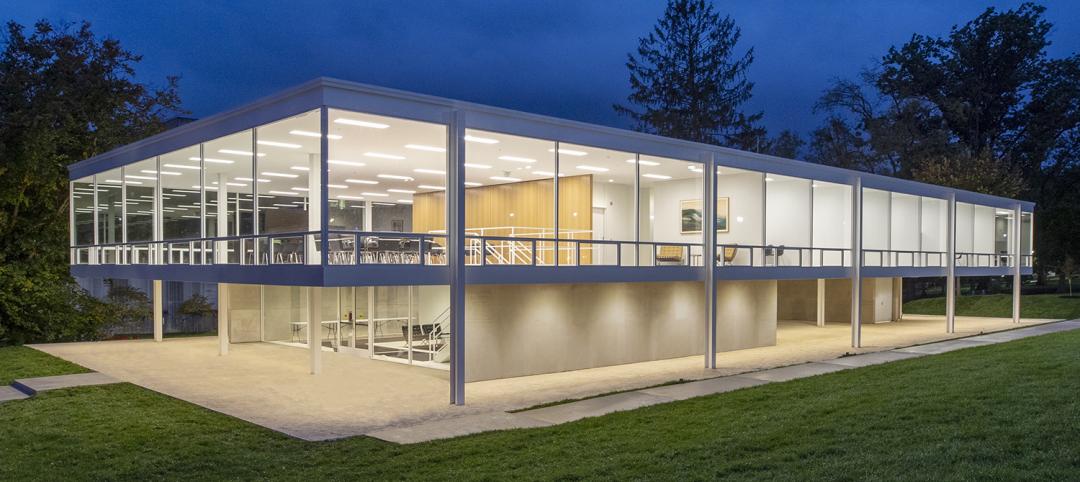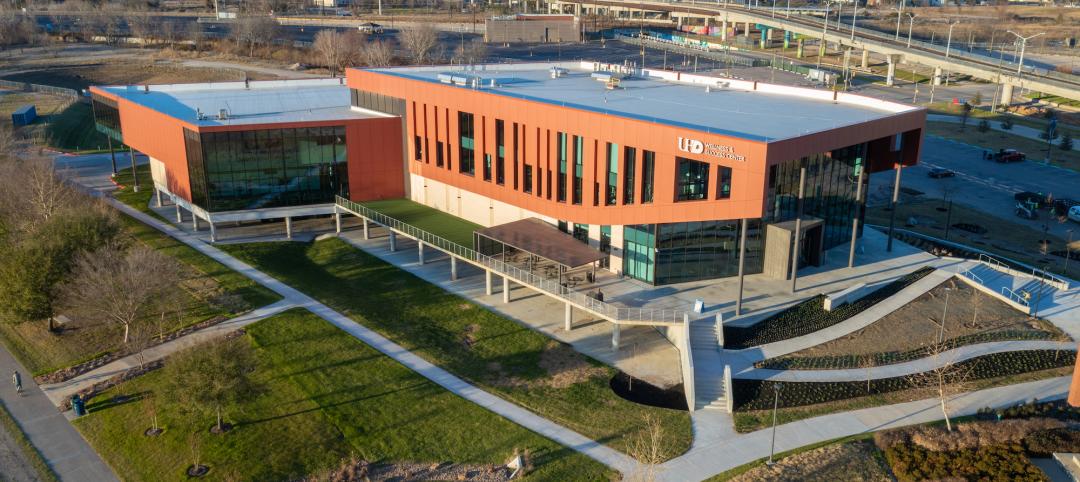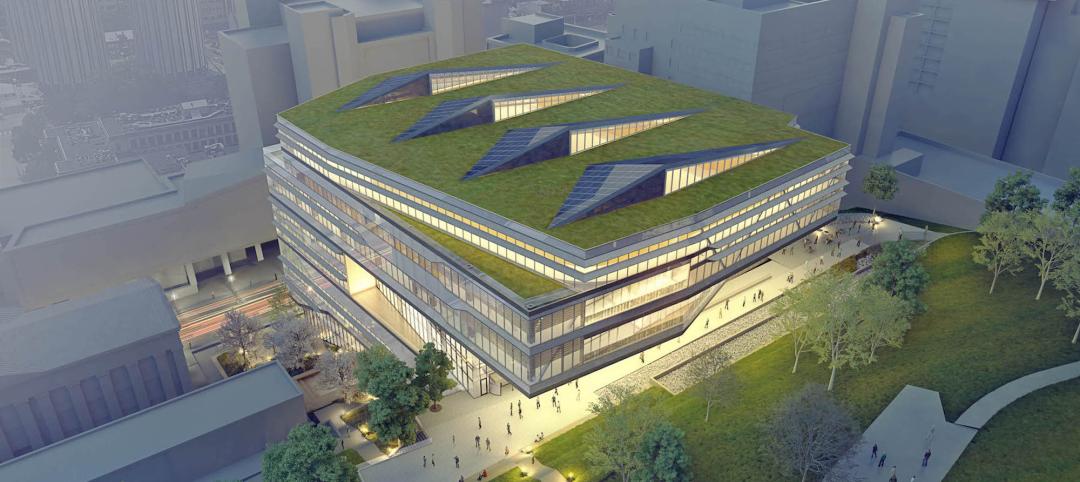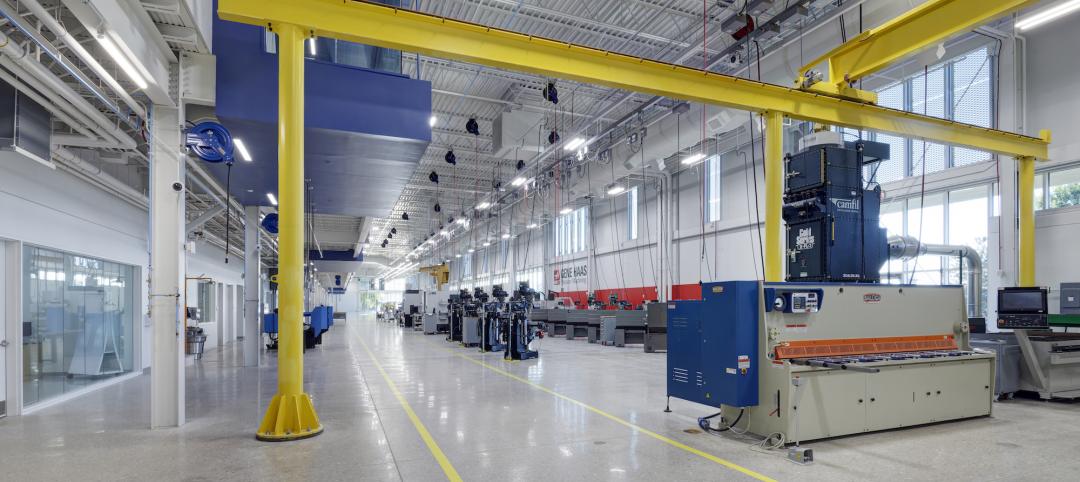The University of Minnesota alumni account for more than 70% of that state’s health professionals. To help prepare the next generation, the university’s Twin Cities campus recently debuted its Health Sciences Education Center, a hub for UM’s health professional schools, and designed to promote interprofessional education and interaction that prioritizes student and faculty well-being.
The 202,000-sf Education Center is positioned to be one of the more comprehensive interprofessional facilities in the country. The project entailed six stories of new construction, and four stories of renovation of an adjacent building. The two structures are connected by portals on four floors.
“The new Health Sciences Education Center is much more than a building; it is a catalyst for change as we prepare the next generation of health care professionals,” says Mark Rosenberg, MD, Vice Dean for education and academic affairs in the Medical School.
Early examples of the Center’s multipurpose utility and transformative potential were evident last summer, when HSEC was used in collaboration with the School of Public Health, Medical School and the Medical Reserve Corps to assist the Minnesota Department of Health in COVID-19 contact tracing. M Simulation—a university team that designs and delivers training experiences for health science students and other stakeholders—also used HSEC’s spaces to train incoming residents and students on personal protective equipment in clinical environments.
REAL-LIFE TRAINING IS PART OF PROGRAMMING
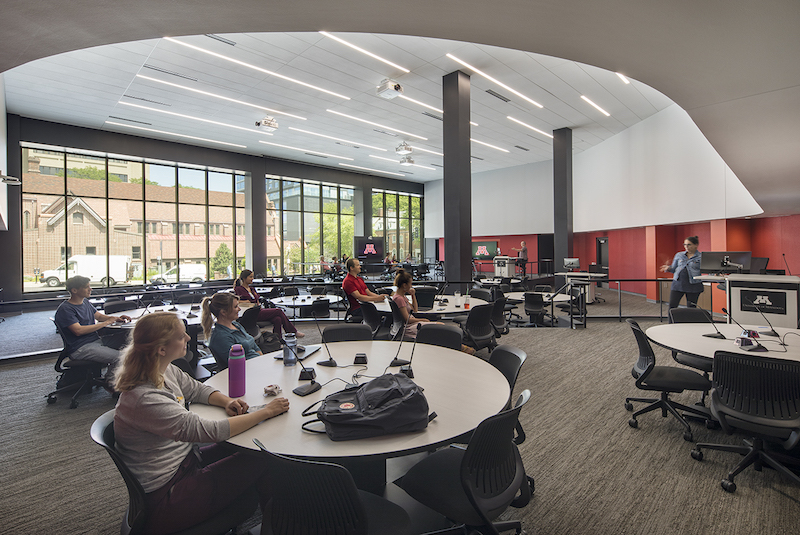
The new HSEC has space for small and large group learning and instruction. Images: Lara Swimmer
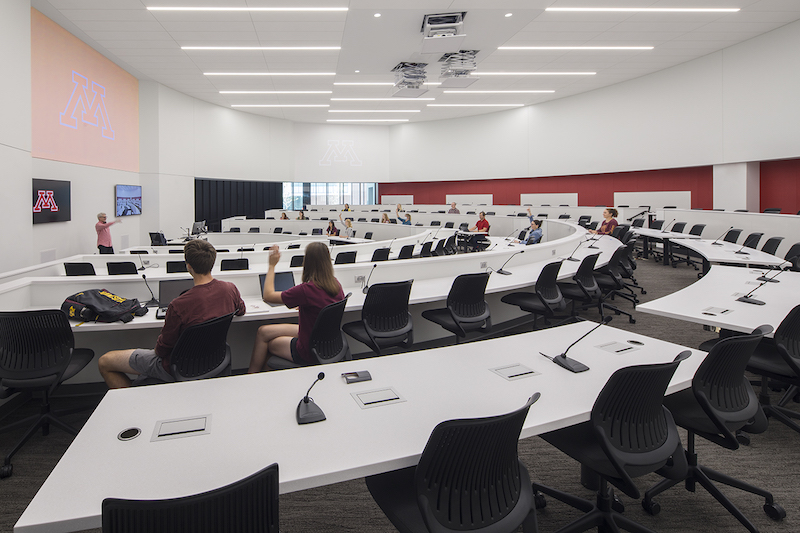
The new HSEC includes:
Center for Health Interprofessional Programs, which connects health professions students from varying disciplines, allowing them to collaborate, network, socialize, and learn;
Biomedical Library and Wangensteen Historical Library of Biology and Medicine, which connects students to healthcare’s history and opportunities for invention and product development that might define the industry’s future, including a makerspace and virtual reality studio;
Simulation Labs on two floors that connect students to the patient experience and the reality of working alongside their interdisciplinary peers. Jakub Tolar, Dean of UM’s Medical School and Vice President of its Office of Academic Clinical Affairs, explains that these labs help prepare students for real-life medical events and crisis, for which “you have to train yourself, almost like an athlete.”
The S/L/A/M Collaborative and Perkins and Will were co-design architects on HSEC. SLAM led this project’s program validation, utilization analysis, building planning, and the documentation of all classrooms, immersive learning environments, and administrative spaces. Perkins and Will, as AOR, provided the exterior and massing design, interior finishes and furniture selection, and public/social space documentation. The Building Team included JE Dunn (GC), IMEG (MEPF), Palanisami & Associates (SE), EVS Inc. (CE), and Sextant (AV consultant).
IN WITH THE NEW
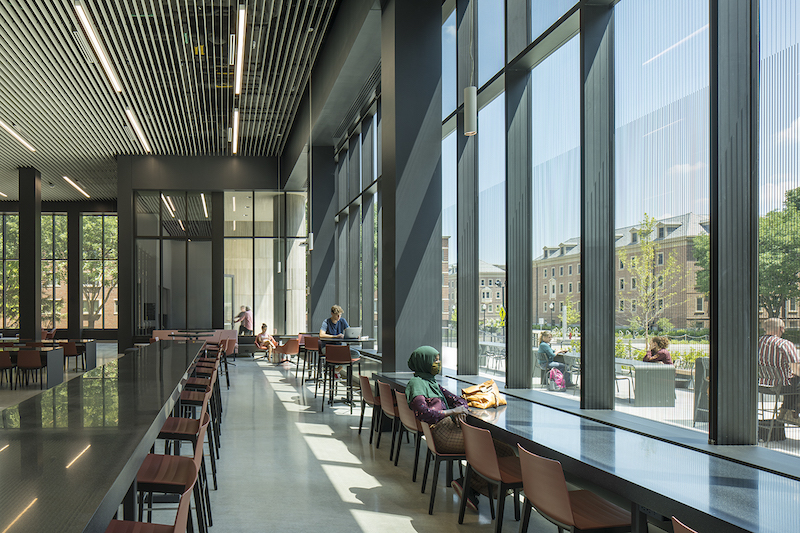
The building's lobbies (above) have lots of seating and natural light. The Center's library features makerspaces and virtual studios. Images: Lara Swimmer, SLAM
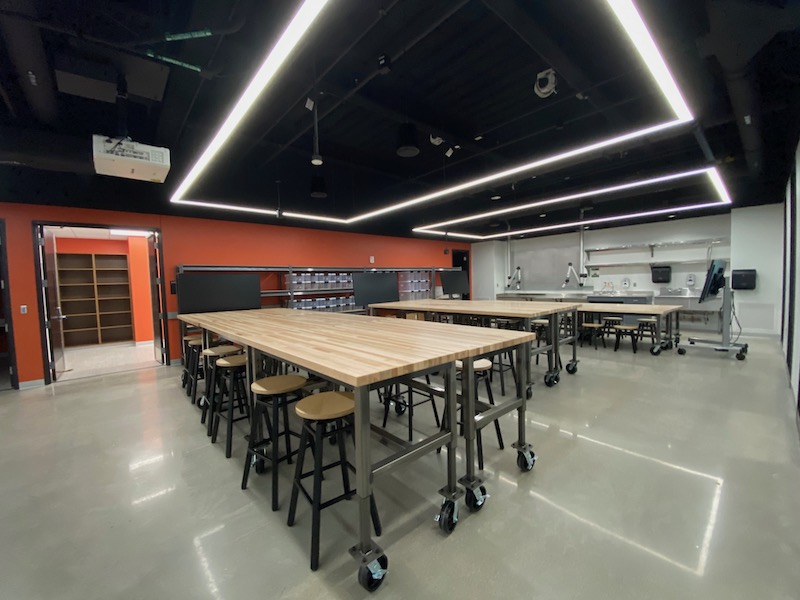
HSEC, which broke ground in February 2018, replaces a four-story brick structure, called the VFW Cancer Research Center and Masonic Memorial Building, that was completed in 1957. The renovated space in the Phillips Wangersteen Building replaces underutilized clinics.
The State of Minnesota invested $66.7 million in construction as part of its 2017 special session bonding bill. The University, along with support from donors, funded an additional $33.3 million in construction costs. Predesign and design from reallocated TCF Bank Stadium bond proceeds totaled $8.6 million. The total cost of the project is $108.6 million, according to the university.
Related Stories
University Buildings | Feb 9, 2023
3 ways building design can elevate bold thinking and entrepreneurial cultures
Mehrdad Yazdani of CannonDesign shares how the visionary design of a University of Utah building can be applied to other building types.
Giants 400 | Feb 9, 2023
New Giants 400 download: Get the complete at-a-glance 2022 Giants 400 rankings in Excel
See how your architecture, engineering, or construction firm stacks up against the nation's AEC Giants. For more than 45 years, the editors of Building Design+Construction have surveyed the largest AEC firms in the U.S./Canada to create the annual Giants 400 report. This year, a record 519 firms participated in the Giants 400 report. The final report includes 137 rankings across 25 building sectors and specialty categories.
University Buildings | Feb 8, 2023
STEM-focused Kettering University opens Stantec-designed Learning Commons
In Flint, Mich., Kettering University opened its new $63 million Learning Commons, designed by Stantec. The new facility will support collaboration, ideation, and digital technology for the STEM-focused higher learning institution.
University Buildings | Feb 7, 2023
Kansas City University's Center for Medical Education Innovation can adapt to changes in medical curriculum
The Center for Medical Education Innovation (CMEI) at Kansas City University was designed to adapt to changes in medical curriculum and pedagogy. The project program supported the mission of training leaders in osteopathic medicine with a state-of-the-art facility that leverages active-learning and simulation-based training.
Giants 400 | Feb 6, 2023
2022 Reconstruction Sector Giants: Top architecture, engineering, and construction firms in the U.S. building reconstruction and renovation sector
Gensler, Stantec, IPS, Alfa Tech, STO Building Group, and Turner Construction top BD+C's rankings of the nation's largest reconstruction sector architecture, engineering, and construction firms, as reported in the 2022 Giants 400 Report.
Steel Buildings | Feb 3, 2023
Top 10 structural steel building projects for 2023
A Mies van der Rohe-designed art and architecture school at Indiana University and Morphosis Architects' Orange County Museum of Art in Costa Mesa, Calif., are among 10 projects to win IDEAS² Awards from the American Institute of Steel Construction.
Sports and Recreational Facilities | Feb 1, 2023
University of Houston opens 'game changer' wellness center at downtown campus
The University of Houston-Downtown (UHD) recently opened its new Wellness & Success Center (WSC). The $39 million, 75,000 sf facility greatly improves the quality of the school’s exercise programs and areas dedicated to them. It also establishes a dynamic core and recognizable landmark for fostering and nurturing an on-campus community, according to a news release from SmithGroup, which designed the building along with HarrisonKornberg Architects.
University Buildings | Jan 30, 2023
How wellness is reshaping college recreation centers
Moody Nolan, a specialist in the design of college recreation centers, has participated in the evolution toward wellness on college campuses.
University Buildings | Jan 27, 2023
Ozarks Technical Community College's advanced manufacturing center is first-of-a-kind in region
The new Robert W. Plaster Center for Advanced Manufacturing at Ozarks Technical Community College in Springfield, Mo., is a first-of-a-kind educational asset in the region. The 125,000-sf facility will educate and train a new generation in high tech, clean manufacturing and fabrication.
Student Housing | Jan 26, 2023
6 ways 'choice architecture' enhances student well-being in residence halls
The environments we build and inhabit shape our lives and the choices we make. NAC Architecture's Lauren Scranton shares six strategies for enhancing well-being in residence halls.


